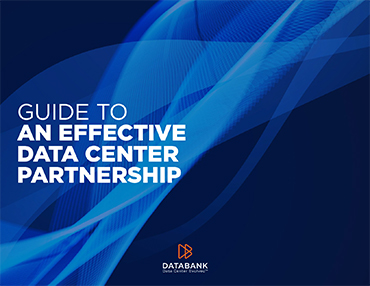Managed colocation, more properly known as colocation managed services, is a relatively new business offering from colocation providers. Essentially, it sees a colocation provider take on some level of responsibility for a business’ infrastructure.
Service offerings in managed colocation
The services typically offered by managed colocation providers tend to be similar to the services offered by managed services providers as a whole.
Remote hands support
This service allows clients to delegate tasks like hardware installations, troubleshooting, and routine maintenance to the provider’s on-site technicians. With remote hands support, businesses can address technical issues promptly without requiring physical presence. It therefore helps to ensure the optimal performance and reliability of their IT infrastructure.
Backup and disaster recovery
Providers offer regular data backups, often utilizing redundant storage systems and off-site backups for added security. Additionally, they develop and maintain disaster recovery plans, outlining procedures for restoring operations in the event of unexpected disruptions such as natural disasters or cyberattacks.
Infrastructure monitoring and management
Managed service providers employ advanced monitoring tools, allowing real-time tracking of key metrics and immediate response to irregularities. In addition to monitoring, providers actively manage the infrastructure by implementing updates and patches and performing routine maintenance tasks.
This comprehensive approach ensures that the client’s hardware operates efficiently. It therefore minimizes the risk of downtime and contributes to the overall reliability and stability of their IT environment.
Managed networking services
This service includes the configuration, monitoring, and maintenance of networking equipment to ensure seamless data transmission and connectivity.
Managed service providers take charge of routers, switches, and other networking components. This includes implementing best practices to enhance performance and mitigate potential bottlenecks.
They also address issues related to network security, ensuring the implementation of robust firewalls, intrusion detection systems, and other protective measures.
Security services
Managed colocation service providers can often provide the same kind of services as a managed IT security provider. This can include deploying firewalls, antivirus software, and intrusion detection systems to mitigate cyber threats. The provider may also monitor these systems for the client.
Additionally, the provider may conduct routine security assessments and vulnerability scans, thoroughly analyzing IT infrastructure to identify and promptly address potential weaknesses. These proactive measures may include patching vulnerabilities, updating software configurations, and fortifying network protocols.
Service level agreements (SLAs) in managed colocation
In the context of managed colocation services, the term service level agreements (SLAs) refers to formal agreements that outline the performance and availability standards guaranteed by the service provider. The metrics by which these will be assessed will be set out in the service contract.
Key components of SLAs
The key components of SLAs will depend very much on the service being offered. For example, in regular colocation, uptime is a standard SLA. With managed colocation services, by contrast, it may or may not be relevant.
For example, if a managed colocation service provider is undertaking infrastructure monitoring and management, then an uptime guarantee may be relevant. By contrast, if they are undertaking remote hands support, then an uptime guarantee is much less likely to be relevant.
The guiding rule, however, is that SLAs should cover any key aspects of service delivery that can be fairly measured. Essentially, they should create a reliable benchmark for a service provider’s ability to meet the customer’s expectations.
Providers that have default service agreements typically have default SLAs in them. When providers are creating personalized service agreements, however, the SLAs should be personalized to the client as much as possible.
Impact on business operations
Effective SLAs improve business operations for both the client and the provider. The client has the reassurance that they will receive the service levels they need. The service provider will have clearly defined the boundaries of what they will deliver (and hence what they will not deliver). Both can therefore go ahead and plan with confidence.
Updating SLAs
SLAs for standardized service agreements can be updated at the provider’s discretion. Generally, however, the provider will give notice of any changes. (They may be required to do this by law).
SLAs for customized agreements are generally reviewed when the associated contract is reviewed. If a client wants to review them earlier, the provider may allow this. The client should, however, be aware that there is likely to be a cost to changing them. The provider may also require the client to sign a new contract.
With all that said, if SLAs are set properly to begin with, they should be valid until there is a meaningful change in circumstances. This means they should generally only be changed if there is a strong reason to do so. At the very least, they should be given a fair trial before any changes are made.
Related Resources:
Managed Colocation Services: An Overview
Tapping Into Managed Services from Your Colocation Provider Saves You Money







